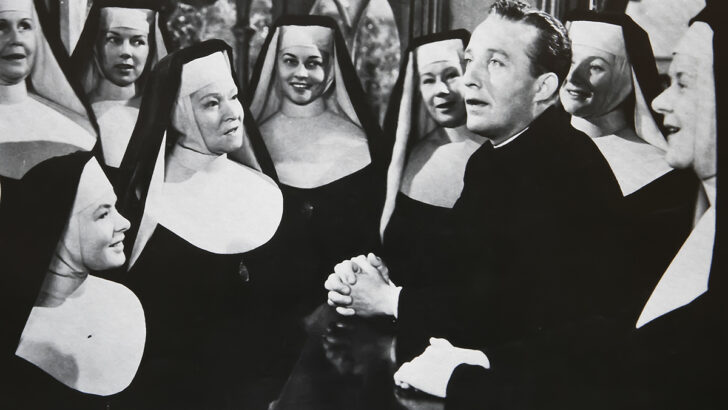The recent statement from the Association of Catholic Priests on how dedicated nuns are portrayed, often negatively, in the media gave me cause to reflect on the topic, and it’s a bit of a patchwork.
The most obvious example is the demonisation of nuns because of their role in the Magdalen Laundries and similar institutions. You wouldn’t think it from the coverage, but such institutions weren’t solely Catholic or Irish. Of course, there were harsh institutions and horrible nuns (as there are horrible journalists), but this vilification must be painful for the many nuns who were kind and dedicated their whole lives to the care of others. Nuns tend not to head for the outrage factory and take to the media to defend themselves. I can see the motivation of this approach (Jesus allowed himself to be crucified after all), though when there’s a defence or explanation to be made, I’d like to hear it.
These programmes don’t do nuance very well, and stereotype nun-villains, including in horror films, are more to the programme makers’ liking”
There seems to be an interminable supply of damning documentaries like RTE’s Ireland’s Dirty Laundries, and there are darkly prejudiced elements in movies like The Magdalen Sisters. These programmes don’t do nuance very well, and stereotype nun-villains, including in horror films, are more to the programme makers’ liking than having complex multi-dimensional characters. One of the more recent examples in this vein was the Woman in the Wall drama series. It was way over the top, though normally I really like the lead actress Ruth Wilson – she was brilliant in the fact-based drama series Mrs Wilson and ironically in that show her character joined a convent, a life decision that was treated positively. Son of a Critch is a comedy series set in Canada in the 1980s running currently on RTE 1. There’s a bossy reverend mother, more like a nun from the 50s, but at least she’s a quirky character – e.g. anti-British but with a sneaking admiration for their royal family. Closer to home there’s Sr Michael from Derry Girls, hardly a stereotype, with her cynical and worldly attitude, nor is she, I suspect and hope representative of modern nuns!
Demonised
Fictional nuns aren’t always demonised, but positive portrayals are less common in recent times. Sr Marie-Louise, the chaplain in the prison drama series Time is a likeable, sympathetic and complex character, though with a secret romantic relationship in her past. There is the jolly old sleuthing nun in the current Sister Boniface Mysteries, a spin-off from the very popular Father Brown series. We lost the wonderful Maggie Smith in 2024, but she played a fairly stereotypical and grouchy mother-superior in the Sister Act films, regularly on replay on Film 4. Now, there was some nuance and understanding in that portrayal as her character strived to keep the religious community going in a deprived neighbourhood. In The Nun’s Story from the 1950’s Sr Luke (Audrey Hepburn) is a three-dimensional character in a serious film, but they don’t make them like that anymore. The Sound of Music was shown yet again this Christmas. The nuns were presented as both spiritual, understanding and wily, though that was made in the 1960s. One of the deepest, most mature and most powerful modern portrayals was in the film Doubt, where Sr Aloysius (Meryl Streep) and Sr James (Amy Adams) played nuns concerned about the possibly abusive activities of a local priest.
I’ve seen plenty of positive programmes about people like Sr Stan and Sr Consilio and the impressive contribution they have made to our society”
Nuns involved in missionary or social work get positive coverage. Sr Clare Crocket, the young nun from Derry who died in the Ecuador earthquake, featured in the inspirational documentary All or Nothing. Her path to canonisation was reported positively on last Sunday night’s Nine O’Clock News on RTE. I’ve seen plenty of positive programmes about people like Sr Stan and Sr Consilio and the impressive contribution they have made to our society. I remember a relatively recent edition of The Meaning of Life with Sr Colette of the Poor Clares in Galway.
Documentary
The Last Nuns in Ireland, despite its flaws, was a warm documentary about the work of Irish nuns. James Creedon’s documentary 75 Years in Japan was a moving tribute to Sister Jeannie Paschal O’Sullivan, who had served as a missionary in Japan for most of her life. Only last week there was largely positive coverage of the appointment of Sister Simona Brambilla to a top position in a Vatican Dicastery.
So, there’s a mixture of vilification and admiration, but we know which one hurts.


 Brendan O’Regan
Brendan O’Regan
